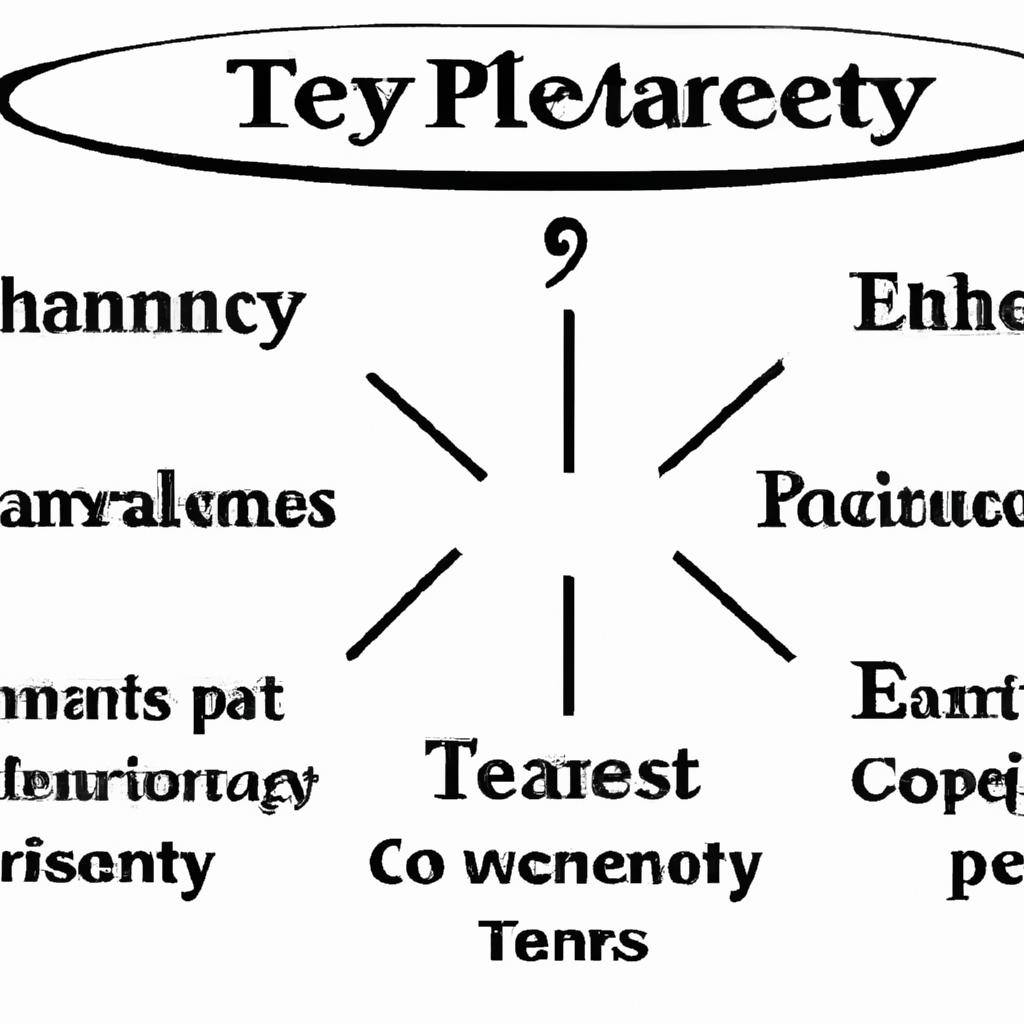In the realm of real property law, the concept of “tenant in severalty” often proves to be a fundamental yet intricate aspect to grasp. As experienced practitioners in estate planning and property law, the team at Morgan Legal Group, situated in the bustling metropolis of New York City, is well-versed in elucidating the finer nuances of this legal term. Join us as we navigate through the complexities of what it truly means to hold property as a tenant in severalty, shedding light on its implications and significance in the realm of real estate transactions.
Understanding the Concept of Tenant in Severalty
Tenant in severalty refers to a type of ownership interest in real property where a property is owned by one individual or entity. This means that the owner has sole ownership and control over the property without any other co-owners. In this arrangement, the owner has the exclusive right to possess, use, and transfer the property as they see fit.
It is important to understand that tenant in severalty is different from other forms of property ownership, such as joint tenancy or tenancy in common, where the property is owned by multiple individuals. With tenant in severalty, there is no right of survivorship, meaning that upon the death of the owner, the property will pass to their heirs through a will or trust, rather than automatically transferring to the co-owners. This type of ownership can be beneficial for individuals who want full control over their property and are not interested in sharing ownership with others.

Key Features of a Tenant in Severalty Arrangement
Tenants in severalty refer to individuals who hold real property in their own name. This means that they are the sole owner of the property and have the right to use, sell, or transfer it as they see fit without the need for permission from other parties. There are several key features that define a tenant in severalty arrangement:
- Exclusive Ownership: A tenant in severalty has exclusive ownership of the property, meaning that they do not share ownership with any other individuals or entities.
- Full Control: As the sole owner, a tenant in severalty has full control over the property, including the right to make decisions about its use, maintenance, and disposition.
- No Right of Survivorship: In a tenancy in severalty arrangement, there is no right of survivorship. This means that upon the tenant’s death, the property will not automatically pass to any other individuals but will be distributed according to their will or state laws of intestacy.

Implications of Tenant in Severalty in Real Estate Transactions
When a property is owned by a single individual, it is referred to as “tenant in severalty” in real estate transactions. This means that the owner has exclusive rights to the property and is not sharing ownership with anyone else. As a result, the owner has full control over the property, including the right to sell, lease, or mortgage it without needing the consent of other owners.
One of the key implications of tenant in severalty is that the owner is solely responsible for any liabilities associated with the property. This includes property taxes, maintenance costs, and any legal issues that may arise. Additionally, in the event of the owner’s death, the property will pass according to the owner’s estate plan, which may involve probate proceedings to transfer ownership to heirs or beneficiaries.

Legal Considerations when Choosing a Tenant in Severalty Arrangement
When it comes to choosing a tenant in severalty arrangement, there are several important legal considerations to keep in mind. One key aspect to consider is the definition of tenant in severalty, which refers to a situation where a property is owned and occupied by only one person, without any co-owners or co-tenants. This means that the individual has sole ownership and control over the property, which can have implications for both the landlord and the tenant.
It is crucial to carefully review and understand the terms of the lease agreement, as well as any applicable laws and regulations governing tenant rights and responsibilities. Additionally, it is important to conduct thorough background checks and screenings of potential tenants to ensure they are suitable and reliable occupants. By taking these steps and seeking legal guidance when needed, landlords can help protect their property and investments in a tenant in severalty arrangement. Remember, knowledge is power when it comes to legal matters.
Q&A
Q: What does “tenant in severalty” mean?
A: “Tenant in severalty” refers to a legal term used in real estate to describe a situation where an individual owns a property in their sole name, without any co-owners or partners.
Q: How does being a tenant in severalty differ from other types of property ownership?
A: Unlike joint tenancy or tenancy in common, where multiple individuals have ownership rights in a property, a tenant in severalty holds sole ownership of the property.
Q: Can a tenant in severalty still have legal obligations to others in relation to the property?
A: Yes, even though the individual owns the property solely, they may still have legal obligations to tenants, lenders, and other parties associated with the property.
Q: What are the advantages of being a tenant in severalty?
A: Some advantages include having full control over the property, making decisions without the input of others, and being able to sell or transfer the property without needing consent from co-owners.
Q: Are there any disadvantages to being a tenant in severalty?
A: One potential disadvantage is that the individual bears full responsibility for all costs and liabilities associated with the property, without the ability to share them with co-owners. Additionally, future decisions about the property may be limited by the individual’s sole ownership.
To Wrap It Up
In conclusion, understanding the concept of tenant in severalty is crucial for anyone navigating the world of real estate and property ownership. It is a unique and important legal designation that signifies sole ownership of a property. By grasping the nuances of this term, individuals can make informed decisions about their property rights and responsibilities. Whether you are a seasoned investor or a first-time homebuyer, knowing the meaning of tenant in severalty can empower you on your journey towards property ownership. Next time you come across this term, you’ll have a better grasp of its significance and implications. Happy property owning!
 Tenant in severalty is a term that refers to a type of property ownership where one individual or entity holds full and exclusive ownership of a piece of real estate, without any co-owners. In simple terms, it means owning a property by oneself. This type of ownership is most commonly seen in commercial properties, but it can also apply to residential properties. In this article, we will delve deeper into the meaning of tenant in severalty, its benefits and drawbacks, and some practical tips for those considering this type of ownership.
Tenant in severalty is a term that refers to a type of property ownership where one individual or entity holds full and exclusive ownership of a piece of real estate, without any co-owners. In simple terms, it means owning a property by oneself. This type of ownership is most commonly seen in commercial properties, but it can also apply to residential properties. In this article, we will delve deeper into the meaning of tenant in severalty, its benefits and drawbacks, and some practical tips for those considering this type of ownership.
Understanding Tenant in Severalty
In traditional property ownership, multiple individuals or entities may have a share in a property, which is referred to as tenancy in common or joint tenancy. On the other hand, tenant in severalty allows for exclusive ownership of a property by one person or entity. This means that the tenant in severalty will have complete control over the property and can make all decisions regarding its use, maintenance, and future sale.
This type of ownership is often chosen by individuals or businesses who want full control over a property, without any limitations or differences of opinion from co-owners. It also eliminates the need for co-owners to be involved in any decisions related to the property, allowing for faster and smoother decision-making processes.
Benefits of Tenant in Severalty
1. Sole Control and Decision-Making Power: One of the main benefits of tenant in severalty is that the owner has complete control over the property, including its use, maintenance, and future sale. This allows for faster decision-making and can save time and effort in obtaining approval from co-owners.
2. Liability and Tax Benefits: As the sole owner of the property, the tenant in severalty is fully liable for any liabilities and taxes associated with the property. This means that if a lawsuit is filed against the property, the owner is the only one responsible for any damages. Additionally, being the sole owner can offer tax benefits, as the owner can claim all tax deductions and benefits associated with the property.
3. Easier Financing: Obtaining financing for a property owned by one individual or entity is often easier than obtaining financing for a property owned by multiple co-owners. This is because lenders prefer the simplicity and low risk involved in financing a property with a single owner.
Drawbacks of Tenant in Severalty
1. Unlimited Liability: While being the sole owner may have some liability and tax benefits, it also means that the owner has unlimited liability. This means that if any legal issues arise or if the property incurs any debts, the owner is fully responsible for handling them. This can be a significant risk for some individuals or businesses.
2. Lack of Diversity: With sole ownership, there may be a lack of diversity in the decision-making process. This can lead to a narrow perspective and limited options for maintaining or maximizing the value of the property.
3. Limited Financing Options: While financing may be easier for tenant in severalty, the options may be limited compared to joint tenancy or tenancy in common. This is because lenders may prefer the diversity and risk management of co-ownership.
Practical Tips for Tenant in Severalty
1. Conduct Thorough Market Research: Before deciding on tenant in severalty, it is essential to conduct thorough market research to ensure that the property is a sound investment. This includes researching the location, market trends, and potential future developments in the area.
2. Develop a Comprehensive Budget: As the sole owner, it is crucial to have a comprehensive budget in place for the property. This includes not only the initial purchase price but also ongoing maintenance costs, taxes, and any potential legal or liability fees.
3. Seek Professional Help: It is always advisable to seek the assistance of professionals when considering tenant in severalty. This includes consulting with a real estate attorney to ensure that all legal requirements are met, as well as hiring a property manager to assist with day-to-day operations.
Conclusion
Tenant in severalty provides full ownership and control of a property to one individual or entity. While it may have its advantages, there are also some drawbacks, such as unlimited liability and limited financing options. Therefore, it is essential to carefully consider all factors before deciding on this type of ownership. It is also recommended to seek professional assistance and conduct thorough research to ensure a sound investment. We hope this article has provided valuable insights into the meaning of tenant in severalty and its potential benefits and drawbacks.

